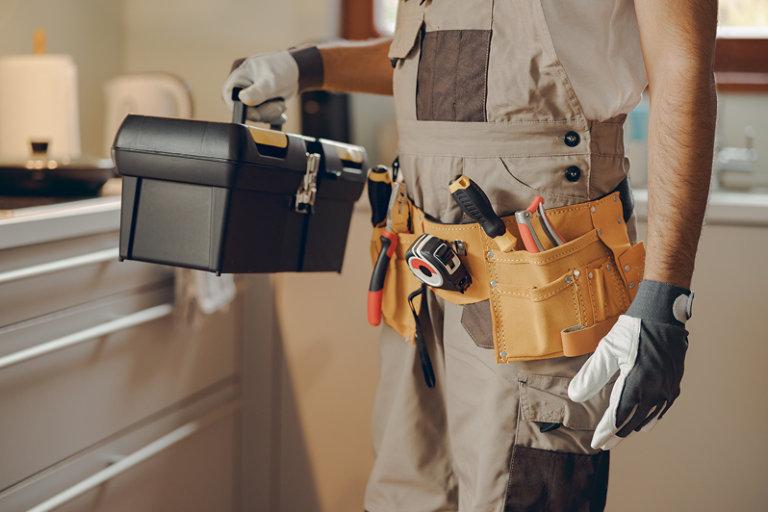The cost of homeownership is more than your bond repayment.
When you buy a home, there is more to consider than your monthly home loan instalment. Often first-time buyers overlook or just aren’t aware of all the costs that come with purchasing a home, and when summed up, it’s often an unpleasant surprise. We break it down into the various costs you need to consider when buying your home, and then those that you’ll need to budget for as a new homeowner.
During the Buying Process
Let’s start with those costs that you need to pay once your offer to purchase has been accepted. These are all once-off costs, paid out in the three months it’ll take to wrap up the home finance and transfer of a property into your name. Play around with various scenarios with our Bond Repayment Calculator.

1. Deposit
What is it? A home loan deposit is your initial contribution to the purchase price of a property. It means that you own a small portion of the home when you move in.
When do you need to pay it, and who do you pay it to? Once your offer (OTP) has been accepted by the seller, you will have a few days to pay your deposit and apply to banks for a home loan.
You don’t pay it to the seller, but to the transferring attorney, who keeps these funds in an interest-bearing trust account. Your money will be secure there until the property transfer and registration is complete. Thereafter it is paid to the seller, and you’ll be paid the interest earned on it.
Is it compulsory? Is it negotiable? It is not compulsory to put down a deposit when buying a home. Read more about deposits here: “Are Deposits Really Necessary When Buying a Home”
2. Transfer Duty
What is it? The transfer duty is a tax paid on every existing property that transfers from one homeowner to another. All homes valued at more than R1, 21 million that aren’t new developments incur this tax.
When do you need to pay it, and who do you pay it to? You make this payment to your conveyancing attorney within the first few weeks of you accepting a home loan offer. Look out for an invoice requesting payment. The conveyancing attorney will pay it on your behalf to SARS before the property transfers into your name.
Is it compulsory? Is it negotiable? As this is a tax, it’s unfortunately compulsory and not negotiable.
3. Bond Registration Fees/Property Transfer Costs
What is it? There are a number of fees charged by attorneys for ensuring a bond is registered over the title deed and transfer of ownership takes place once all the paperwork is complete and signed between all the parties that play a role in this transaction.
When do you need to pay these fees, and who do you pay them to? Bond costs (such as the bond registration fees, a deeds office levy, postage/petties and attorney fees) are paid to the bond registration attorney (who is appointed by the bank) to facilitate the process of registering a bond against the property. The transferring attorney facilitates the transfer of the property into your name as the buyer, and charges various fees for this service (comprising of another deeds office levy, postage/petties and attorney fees). All these are paid to the various attorneys within the registration and transfer period, so look out for invoices informing you that payments are due.
Are they compulsory? Are they negotiable? Some of these fees are compulsory (e.g. the deeds office levy), but all the other administrative fees are negotiable with the attorney upfront. You can ask your bank when applying for a home loan to discount the registration attorney fees and ask the same of the transfer attorneys when you first engage with them.
4. Bond Initiation Fee
What is it? This is a fee charged by the bank for processing the bond application and opening your bond account.
When do you need to pay it, and who do you pay it to? This fee is charged upfront, and usually capitalised and added to your home loan account once your bond is registered. Alternatively, it can be paid by you as a once-off payment.
Is it compulsory? Is it negotiable? Banks may consider waiving this fee if you request it upfront.
Once You Move In
Once you’ve paid all the upfront costs of transferring a property into your name and registering a bond against it, it’s time to plan the move into your new home. Budgeting in advance for all these regular monthly costs is an important exercise so you’re not caught short. Other than the obvious bond instalment and administration fee you’ll pay to your bank (monthly for the next twenty to thirty years!), these are some other costs you need to be aware of and budget for.

1. Occupational Rent
If the transfer/registration process is taking longer than expected, you can still move into your new house, but you will pay occupational rent to the seller (i.e. current owner) of the property until the house is yours.
2. Moving Costs
You’ve bought your dream home, now you’re going to have to move in. Depending on where you’ve been living, how much furniture you already own, and how far you’re moving, you might have to hire a moving company.
3. Insurance
There are two types of insurance to consider when buying your new home. Your home loan granting bank will insist you take up home/structural insurance and you’ll need to provide proof of this before transfer can happen. This insurance covers you if anything in the building is damaged, e.g. geyser, roof, windows, flooring etc. Your belongings aren’t covered by this insurance though, and you should consider home contents cover for your personal effects.
4. Levies, Rates & Taxes, Water & Lights
Regardless of whether you buy a stand-alone property or one a in complex, you’ll be required to pay for your monthly water and electricity consumption, refuse removal and sewerage, rates and taxes, and levies (payable for sectional-title properties). The property practitioner will be able to provide you with current statements for all these costs to give you an idea of what to budget for.
5. Home Repairs/Maintenance
Budgeting and planning for the inevitable/necessary cleaning, repainting and other repairs are recommended once you’re over the shock of what buying a home costs you.
6. Home Utilities
Anything from a security/alarm system, internet/fibre, a power/solar back-up system, garden services, pool cleaning etc. is a possible home utility. You’ll need to prioritise what you and your family’s specific requirements are and which of these you’ll need upfront when you move in or get them in the future when you can afford these additional costs.









































